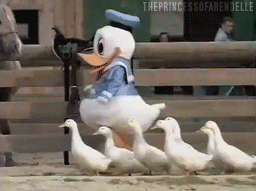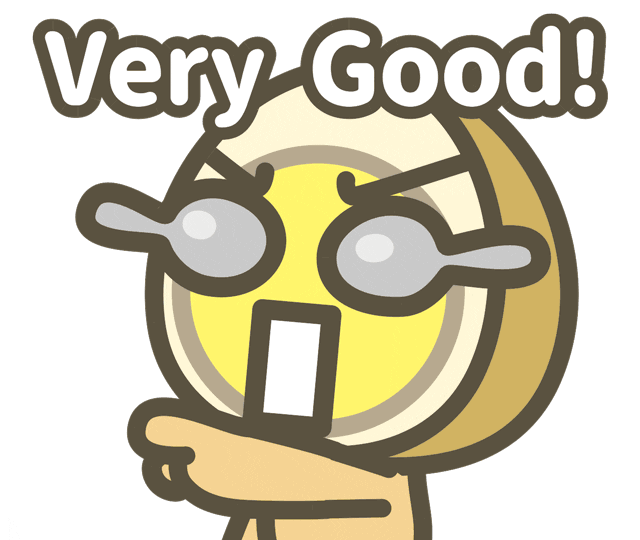See How Easily You Can Speak Like A “Leader”

What does this have to do with “Speak Like A Leader??”
See, our society holds a different set of expectations and images for a “problem solver” versus a “leader.” Since we live in a society …. our ideas get infected. Let me ask you. What do you see in your head when the word “leader” is mentioned?
You may see “a charismatic storyteller” like Steve Jobs, “a passionate motivational coach” like Simon Sinek, “a chill and funny chatter” like Norm Macdonald, or even “a knowledgable kid” like Palmer Luckey (my recent favorite).
Whoever it is in your head, you see someone, a mental model of “how a leader SHOULD speak,” and you, currently, do not speak like that “SHOULD.” Little did I know, although each of us has a unique pursuit and taste, we all share one thing when a leader speaks:
Sometimes that transformation is tiny and inconvenient by coming from a place least expected. For example, a suspicious celebrity making a joke that cracked your laughter, a stupid coworker commenting on something so unnecessarily that it stuck in your head, or an unprepared pause and prolonged gaze during a conversation with an acquaintance you aren’t sure how to interpret yet.
Then one day, somehow, you got over it. They suddenly all made sense. Or, still not. It doesn’t matter. Our communication doesn’t stop when the conversation stops because our brain doesn’t shut up by our will.
Communication efficiency is not about charisma or persuasion. It’s about sense-making and connecting. Public speaking is no different. Some experts say, “The goal is never about yourself; it’s about your audience.” I DISAGREE. I think it’s about both yourself and your audience. If you can’t identify your own voice, who you are, and what you stand for, you cannot connect with others, on the stage or off the stage, inside yourself or outside yourself. We tend to forget we are our own audience.

You never know what will inspire you.
While pitch, presentation, and leadership appearance are legit use cases for great communication, not every one of us makes a living by speaking. However, deep down, each of us wishes to have said something better, more considerate, accurate, or more effective. Once you have experienced a great communicator in your life, you cannot stop wondering, “How did they do that? Can I do that?”.
Yes! You can! They must have started from somewhere! Maybe they were born with a gift, they were raised by parents who are good communicators themselves, and they just picked them up without realizing it.
But believe me, those who made it feel like magic are those who were worst at them at one time, who didn’t know how or even hated the idea of learning how to communicate. How is that not a despicable idea? Why shouldn’t I be as genuine and authentic as I have always been? Why do I compromise my integrity for the norms?
Those people with magic power started from somewhere, somewhere that’s average, stupid, or even ugly. A place where nobody cares about them yet.
Oh, thanks! Thanks for pointing out the only benefit I have as a nobody. My mistakes are cheap. My stake is low. My reputation … doesn’t quite exist yet beyond my imagination. So, if I did it wrong, I could redo it, and nobody would notice it except those ones who love me :) blink~blink~

I am sold. But, a useful mindset itself doesn’t solve the problem for me. My problem is the debugging process. It is dread! Is it because of my preparation? My tone? My logic? The previous impression I gave to people? Or just because I have a big accent and a small vocabulary?
I never know. I can never get into other people’s heads and find the answer I’m dying for, so I kept my precious social anxiety with me for three decades until, one day, I realized this.
We are never ever logical or scientific, nor are we noble or follow our own plan (especially those who are highly educated or technical! Looking at you! The lady who signed up for a Ph.D. program then quit for an engineering job). In the end, we are just tiny creatures who carry desires and understandings fed by random number generators.
It’s pretty depressing to consider how limited our thinking power is. I tried to stop thinking about it, but I feel it may be better to use my overthinking to turn this unacknowledged fear into a lovely monster instead. This way, we can all fight against it together. That sounds very appealing to me.
The name of this monster is called:
For the first time, it was not for meetings at work, not for a job interview, not even for becoming a better friend for those we care about, but for the sake of “This thing is fucking hard!” and… I got excited. Yeah, I told you, I never make IMPORTANT decisions based on logic. (My logic is reserved for things that aren’t important.)
Now, let’s get started!

1. Misconceptions That Hold You Back
Misconceptions are just a cover for another word: “ignorance.” How can I stand myself being ignorant?! That must be the worst thing that can happen to me. However, when we don’t have more bandwidth to do the research, we compress high-dimensional data into lower dimensions, and we force a numerical value into a binary value. (Yeah, as a 2-year-old machine learning engineer, that’s the only analogy I have)
We do this repeatedly every day for the efficiency of modern life until to the level we can only live inside our own bubbles because we are conditioned only to speak one language.
In his book “Influence,” Robert Cialdini shares an example to demonstrate how we are biologically wired to act stupidly. When asked why merely increasing the price of jewelry doubled the sale, he answered with an observation from ethologists: A polecat is a natural enemy to turkeys. When a turkey saw a polecat, it attacked it furiously. However, when a polecat is decorated with a specific “cheep-cheep” noise that usually a turkey baby makes, the mother turkey will take in the polecat as if it were one of her babies and feed it.
That’s ridiculous. I agree.
But here is the reason why it worked. Naturally, that “cheep-cheep” sound had only been made by turkey babies, not all babies, but only by the very healthy ones. By responding to that sound, mother turkeys did a great job breeding the species. Mother turkeys actually mistreat or even murder their own babies if they don’t make that “cheep-cheep” sound.
If the point hasn’t become clear, here it is:
I don’t find it particularly sad. Instead, I find it amusing. Please, god, tell me I’m not a sociopath. Er, never mind. I don’t want to decide which god I am dialing.
Joking aside, what I want to share is this: That book was published in 1984. I didn’t trace when that ethology research publication itself, but here is my thinking: outside me, many people in this world know about this very well and, as a matter of fact, they make a living off it: salespeople, marketing people, politician, brokers, recruiters, etc.

I don’t like the reality. It’s cold.
If I choose to live in society, I don’t think I can stay neutral. At some point down the road, I will be asked to decide whether to exploit or be exploited. I’m already struggling with my ability to work on one thing in one life. Please don’t ask for more.
If an unsolicited voice sneaks into my head, I must fight back. The way to do this is to turn up the volume of my own voice. And how to do that? My answer is to do more and think less, similar to data-centric machine learning model development. But…. don’t listen to me! I’m not your voice! Although I want to be.
Some people’s contempt for public speaking training comes from their association of “communicator” with “con artist.” This one is not hard to solve. Just model the people you like, not the ones you dislike.
In engineering, we always talk about ROI. We tend to think more like an investor than a scientist. When it’s time to plan out a new project, we first aim for the low-hanging fruit. I see we should apply the same principle to our life and career.
You already did all the hard steps of establishing yourself in a new country or industry. You can choose to spend more time honing your technical skills, or you can spend invest time in improving your communication skills. Based on your experience, which one gives you a higher return at this career stage?
The best communication pales can’t replace the actual work. A speech can’t move the mountain, but it can move the people who can move the mountain

Communication is for teamwork.
2. The Invisible Opportunities
How often do you do these? Vent about recent work with a friend, small talk with an acquaintance, or mentally prepare yourself for a difficult conversation with your loved ones. Whenever we get a chance to put down our work and enjoy the moment, we feel itchy for an enjoyable conversation, the Midas touch for the cold and boring reality.
As I grow older, plainer, and saner, it turns out those situations have a much bigger impact on my daily life than my meetings at work or pitches for business. Therefore, that’s how I started my journey.
I spent three years trying to convince my husband that “we should live to work,” and my husband is working just as hard as I did trying to convince me the opposite.
Three years later, we still don’t have it settled, but we became happier keeping it that way. We enjoy each other more when we try our best to be understanding and honest rather than to be aligned.
Very soon, this point of view overflew.
I started to use this idea everywhere. I started networking, writing, filming, building, and failing in public. I do want attention because that’s the new currency, and I’m poor, but more importantly, I’m curious how things can be interpreted by others as well.
While I was having a good time, some side effects happened. People started reaching out to me for consulting, and my articles got curated by publishers. I also have a YouTuber friend who got invited to create a machine learning course and another friend whose videos got sponsored by a brand because her voice matches the brand’s identity.

Finally, I realized when I put myself out there, intentionally or unintentionally, opportunities will just come to me. This is the invisible benefit I didn’t see when I just started.
I think the same is true for communication. There will be transformations and stories you won’t know beforehand, but when you keep investing in your communication, they will come eventually.
3. Break It Down & Build It Up
With all the misconceptions and surprises recognized, let me start with something more tangible. Here is my measure of great public speaking: clarity and consistency.
Clarity
What am I trying to get out of my speaking?
Does what I say line up with what I think?
Does how I present myself line up with how I feel?
How have my similar speeches worked out in the past?
Can I imagine the worst unknown in this new situation?
What is the expectation from the other side?
How can my point be misunderstood?
Is the person in the state of listening?
Did I say it the way that will stick?
I can go on and on. I’m fascinated by the power of language. But in reality, it’s less about knowledge. It’s much more the execution. I have a friend who is a supply chain professor. She worked at Google and have impressive publication citation for her research. Basically, she is an authority in her field. However, when she gives lectures, her voice shiver. Although she has every reason to be more confident than those personalities on social media, but her focus is not on improving her public speech, so she keeps speaking nervously.
Consistency
Sometimes we feel energetic and ready to conquer the world, so we hop on a call with a friend or bombard them with our messages. Sometimes we feel tired and long for the tranquility we haven’t experienced; we open a book or watch a movie. The rest of the time, we feel anxious and just want to obtain the answer when we don’t even know what the question is; then, we browse YouTube or online articles.
In our personal lives, we are high-dimensional and inconsistent, but when we put ourselves out there, inconsistency can confuse others. For example, can you imagine a Fitness YouTube channel you subscribed suddenly start making content about gaming or finance? You will get confused as a viewer.
That is content consistency. There is also delivery consistency. Imagine yourself being shy and timid most of the time in team meetings. One day, you got some opinions to offer, but you probably will find it hard to speak up for yourself because it’s different. It takes time to build a new memory of your own image. If you are not predictable, people will have more anxiety when interacting with you.
4. Rinse and Repeat
Growing into the person I want to be won’t be easy. A mental trick I use is to “never break the character.” If I decide to be a successful entrepreneur, I will practice “faking” it until I am so comfortable in this new identity that I don’t need to “fake” it anymore.
What I admire about entrepreneurs is their ability to bounce back quickly no matter what happens. They jump on an idea with enthusiasm and get it off the ground. That idea often doesn’t work out, but their enthusiasm doesn’t fade. They roll with it just as how any successful entrepreneur would act. In a word, they “never break the character.”
If you are a non-native speaker and ready to level up your communication efficiency, feel free to sign up here to become a founding member of the SpeakBit Community.

